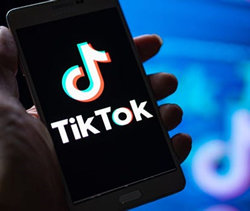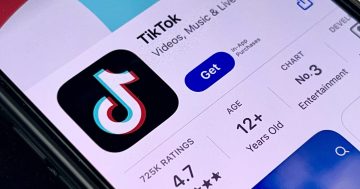 The European Union’s two biggest policy-making institutions have banned TikTok from staff phones for cyber-security reasons, marking growing concerns about the Chinese short video-sharing app and its users’ data.
The European Union’s two biggest policy-making institutions have banned TikTok from staff phones for cyber-security reasons, marking growing concerns about the Chinese short video-sharing app and its users’ data.
TikTok is under scrutiny from Governments and regulators because of concerns that the Chinese Government could use the app to harvest users’ data to advance its interests.
EU Commissioner for the Internal Market, Thierry Breton, who announced a ban by the European Commission, declined to say whether the Commission had been subject to any incidents involving TikTok.
An official also said staff at the EU Council, which brings together representatives of the member States to set policy priorities, would also have to un-install TikTok from their personal phones with access to EU Council services.
Responding, TikTok said it was disappointed and surprised that the Commission had not reached out before instituting the ban.
In December, the United States Senate passed a Bill to barring Federal employees from using TikTok on Government-owned devices. TikTok is banned in India.
The EU’s Executive Commission said in a statement that the decision would apply to work and personal phones and devices.
“To increase its cyber-security, the Commission’s Corporate Management Board has decided to suspend the use of the TikTok application on its corporate devices and on personal devices enrolled in the Commission’s mobile device service,” it said in a statement.
“This measure aims to protect the Commission against cyber-security threats and actions which may be exploited for cyber-attacks against the corporate environment of the Commission.”
The European Parliament said it was aware of the Commission’s action and that it was in contact with it.
“Relevant services are also monitoring and assessing all possible data breaches related to the app and will consider the European Commission’s evaluation before formulating recommendations to European Parliament authorities,” a spokesperson said.
The Commission said security developments at other social media platforms would also be kept under constant review.
Brussels, 24 February, 2023









